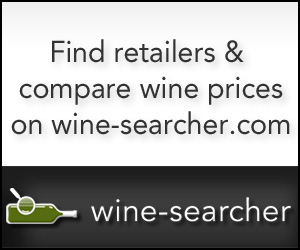|
Cooked!
It doesn't take most wine enthusiasts long to learn to recognize a wine that's "corked." Once you've had it pointed out, it's easy to detect the musty, mushroomy stench of chlorine-based chemicals from tainted natural corks (or, on occasion, wood and other contaminants). But how about the other frequent culprit in spoiled wine? "Cooked" wine - damaged by exposure to excess heat in transportation or storage or a long spell on the shelf in a warm wine shop or even on your own wine rack at home - can also escape detection until you've brought it home and uncorked disappointment at the dinner table.
This process is not unknown in the industry, and legend has it that the occasional unscrupulous producer will "flash-heat" cheap wines to enhance their fruit profile ... for a little while. But this practice isn't prudent, and I don't recommend that you boost your wines with a brief bake in a warm oven. The flash-heating effect doesn't last for long, and experience shows that cooked wines quickly fall apart, because of the damaging effects of the heat itself, and perhaps because the expansion and contraction of the wine and air in its headspace may inhale a bit of damaging air around the cork. I had the disappointment of an obviously "cooked" wine the other day; no point in naming it, for fear the producer be blamed for the importer or retailer's crime. Suffice it to say that it was a fine Sangiovese and Sagrantino blend from Umbria that I had been looking forward to enjoying with an excellent Italian meal. The first sign of trouble came when I noticed that the foil capsule around the business end of the bottle was glued tight to the glass with dried wine that had leaked around the cork ("crud," to use a technical wine-tasting term). While this is not a sure sign of dammaged wine - I've had plenty of fine wine from repulsively cruddy bottles - it's an almost certain sign that the wine hasn't been kept consistently under cool storage conditions. The cork seemed unusually soft, spongy and dry, and when I pulled it out, it had been stained with red wine from end to end. The wine's color didn't betray serious problems: It was clear, not cloudy, and remained garnet, reddish-violet, without the distinct "brown" colors that betray a dead wine. But the aroma and flavor further suggested a wine damaged by heat or exposure to air: Subtle fruit remained, focused on red-skinned plums, but it was hiding shyly behind a veil of burnt sugar and caramel. Tart fruit flavors were laced with the light but distinct walnut and pecan character, reminiscent of Sherry, that betrays oxidation. This one was borderline, frankly. In contrast with cork taint, which almost always renders a wine undrinkable for me, this one retained enough fruit and structure to be palatable. But the experience was significantly diminished, and it wouldn't be fair to represent this wine as typical of its brand with a formal tasting note. Bottom line, if the retailer was aware that the wine was damaged, it shouldn't have been on the shelf. And if we hadn't gone ahead and drunk most of the bottle, I would have felt fully justified in taking it back for a refund. If you encounter a wine that's obviously corked or cooked, you should do the same.
TELL US WHAT YOU THINK!
Then, I hope you'll follow up on your vote by dropping by our non-commercial WineLovers Discussion Group to join in a conversation on today's article here: To contact me by E-mail, write wine@wineloverspage.com. I'll respond personally to the extent that time and volume permit.
PRINT OUT TODAY'S ARTICLE
SUBSCRIBE: Administrivia To subscribe or unsubscribe from The 30 Second Wine Advisor, change your E-mail address, or for any other administrative matters, please use the individualized hotlink found at the end of your E-mail edition. If this is not practical, contact me by E-mail at wine@wineloverspage.com, including the exact E-mail address that you used when you subscribed, so I can find your record. We do not use our E-mail list for any other purpose and will never give or sell your name or E-mail address to anyone. I welcome feedback, suggestions, and ideas for future columns. To contact me, please send E-mail to wine@wineloverspage.com All the wine-tasting reports posted here are consumer-oriented. In order to maintain objectivity and avoid conflicts of interest, I purchase all the wines I rate at my own expense in retail stores and accept no samples, gifts or other gratuities from the wine industry.
Friday, April 7, 2006
|





